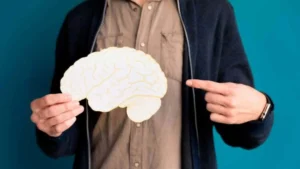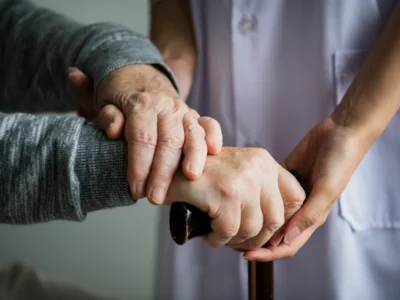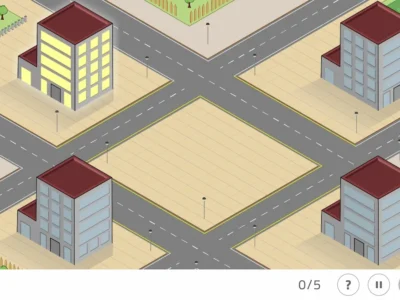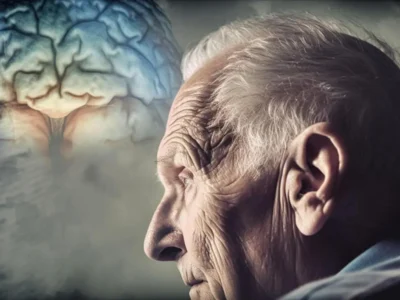Javier Esteban Libiano, Master’s degree in Neuropsychology from the University of Salamanca, explains everything related to cognitive functions.
Cognitive functions are a group of mental processes related to information processing that allow us to interact and relate adaptively in our daily lives. We have various abilities such as memory, attention, language, etc. These functions enable the ability to respond to stimuli and can be intervened upon to enhance and improve them. In this post, the definition of cognitive functions will be explained, which are the most important, how they work, and some stimulation tools to slow cognitive decline.
What are cognitive functions?
We can define cognitive abilities or skills as a set of aptitudes, attitudes, processes and faculties of our mind. They are what allow us to perceive, attend, process, select, interpret, analyze and respond to everything around us in order to properly adapt to our environment and to the different contexts and situations we face at any given time.
We receive stimuli from the world we live in through the senses. Vision, hearing, smell, taste and touch are continuously receiving information. Another system that provides data we must take into account is the somatosensory system; it provides information related to pain, temperature, body position and the position of the different organs that compose it. Part of all the information we receive is processed by our brain, which selects the most relevant stimuli to interpret the environment around us and, through its analysis, we generate an appropriate response to the situation we are in at that moment and must face, translating it into behavior. We can do this thanks to our cognitive functions working.

Subscribe
to our
Newsletter
Importance of cognitive functions
The situations we face day to day require a reaction, either by performing an action or by inhibiting a behavior on our part.
From the moment we are born we are continuously interacting with the environment around us. At that first moment of arrival to the world, the newborn’s cry occurs automatically and innately; it sends us a message that says: I am here, I am breathing and I need someone to take care of me. From birth and through the stimuli we receive during our development, traces are generated in our central nervous system through the specialization of groups of neurons, which are associated with defined and well-determined functions, until achieving a sophisticated and perfectly interconnected system.
This development allows us to relate to the world in an adaptive, adjusted and appropriate way, responding to the demands it places on us and satisfying the needs that allow us to preserve life. This refined, selective, delicate and precise system is formed, among other things, by the cognitive functions.
The most important cognitive functions
Cognitive functions are related to information processing. We receive a stimulus or input, we interpret it and we give a response or output by performing or inhibiting a behavior. The most important cognitive functions are:
Memory
This ability allows us to remember that we have a doctor’s appointment tomorrow, how to make a recipe, how to drive a car or, on the most basic level, how to dress ourselves. We also remember the order in which we must put on the different garments and what type of clothing we should wear in relation to the weather at that time. Although it may seem very simple, it is a very important ability for adequate daily functioning.
Attention
Through attention we can focus on the information that is relevant to us from what is presented to us. We perform this activity continuously and often unconsciously.
Perception
Perception allows us the first approach to stimuli, the initial knowledge of them, capturing them, as the very name of this ability indicates, perceiving them and realizing that something is calling our attention.
Language
Language is the ability that allows us to differentiate ourselves from other animals. We have a code created to translate our feelings and thoughts into words understandable by other human beings around us. Thanks to language we can explain the sequencing of an action, recount our memories and express our needs. It also allows us to read instructions, understand what others are telling us or write the shopping list. The language ability is divided into oral language (expressed and received) and written language, which is divided into writing and reading.
Executive functions
These are a group of skills that allow us to plan actions, make decisions, generate an action plan and evaluate goals and subgoals. They also allow monitoring of the different steps oriented toward the goal, reorienting and correcting actions that deviate us from the action we want to achieve. Through the cognitive functions we can make final and intermediate objectives flexible, drive and initiate the start of actions, organize ourselves, anticipate and inhibit. These functions lead to a complex system of processes that occur in an ordered and simultaneous manner.
Orientation
Orientation enables us, on one hand, to be properly oriented in space and time, as well as to know where we are physically, what date it is today, what season it is and what part of the day it is. On the other hand, it provides us with the ability to pay attention to information in the environment that is useful to ensure survival. For example, hearing a loud noise because something has fallen or perceiving the smell of gas if there is a leak.
Reasoning
Reasoning enables us to draw an adequate analysis of both known situations and unknown situations that may be analogous to those we know. For example, if thunder is heard it is because there is a storm, and if there is a storm, it will rain. Based on this interpretation we may take an umbrella if we are going out.
Motivation
Motivation gives us the option to orient ourselves toward a particular resource or procedure that facilitates the satisfaction of our need, generating or reinforcing the drive we need at the start of a behavior to obtain that satisfaction.
How cognitive functions work
The cognitive functions do not work in isolation; rather, each action we perform, each decision we make that generates a particular behavior is the result of different skills functioning at the same time. In this way, we achieve, jointly and combined, adequate functioning in our daily lives.
Cognitive skills allow us to carry out all the activities we perform, whether accompanied by motor behavior or if we are simply sitting on the sofa remembering something or inhibiting an inappropriate behavior.
We use them continuously without being aware of it, from the moment we open our eyes each morning and start the day. They are necessary to have memories, perform actions, learn, communicate, know how to act, give responses, generate behaviors, be motivated, analyze, judge an event, etc. All the activities we perform require cognitive functions.
Each morning when we wake up we begin to activate a series of skills. When we shower, dress or prepare breakfast. These actions are possible thanks to our cognitive functions being put into operation.
How do cognitive skills intervene in daily activities?
For example, in the action of making breakfast, attention, perception, memory, decision-making, orientation and executive functions, among others, are involved.
When dressing, memory is involved, since it is necessary to remember where each garment we are going to put on is, which garment is suitable for the season and the weather that day. Perception is also involved, making us feel cold or hot. In the same way, attention helps us put on the garments from beginning to end without being distracted by other stimuli that we continue to receive unconsciously.
Other cognitive functions involved are decision-making, mental flexibility and executive functions. They all act at the same time to allow us to perform our behavior appropriately.
Localization of cognitive functions
Some of these abilities or skills can be associated with specific and localized regions in our brain. For example, the area associated with language is located in the left frontal lobe of the brain in more than ninety percent of people. It is known as Broca’s Area. Knowing this, if a person has a stroke or develops a tumor, and diagnostic tests indicate that it has occurred in this region, we can deduce that this person will have a language deficit and we can establish a stimulation program to alleviate or recover this deficit.
Memory is located, among other regions, in the hippocampus, the thalamus, the amygdala, the mammillary bodies and the cerebellum.
Other functions, such as attention or perception, are not clearly associated with specific regions of the brain; rather, their activation occurs more diffusely in different brain regions spread across the different lobes of the brain that activate for their functioning.
Stimulation of cognitive functions
Neuropsychology is the science responsible for studying the functioning of the different cognitive functions. In addition, this science studies which regions of the brain are activated for their functioning, how to enhance and stimulate them to achieve optimal functioning, how to recover them in case of deficit and how to maintain them and slow their deterioration in dementias. The aim is to maintain people’s autonomy and independence, achieving the most adequate possible brain functioning.
Through appropriate stimulation exercises we can influence the functioning of cognitive functions. With the correct neuronal excitation we achieve activation of the different neurons involved in the optimal functioning of the various functions and therefore we achieve an adequate adaptation to the context. Thus, we generate the most efficient behaviors or compensatory responses to the demands that life circumstances require at any given moment.
Stimulation tools to slow cognitive decline
There are tools that provide this stimulation, which results in the optimization of the functioning of our cognitive functions. This stimulation is directed at brain neuroplasticity. This is the capacity of the central nervous system to assume functions circumscribed to a given area in a completely different area, either by proximity or by relocation of the function or ability. Our brain could modify its structure through brain stimulation, reorganizing its neuronal specificity, assigning to other regions and therefore to other neurons activities that are diminished or deficient due to physiological or physical causes. With stimulation we would try to promote preserved functions to instigate neuronal activation of nearby regions that at that moment are deactivated or whose functioning has slowed.
Cognitive stimulation instruments have proven to be an effective tool in the treatment of the loss of cognitive functions associated with age, due to physiological or physical causes and the losses related to a dementia diagnosis. Thus, stimulation in this latter group of people leads to a slowing of deterioration associated with the mentioned pathology, preserving the person’s independence and autonomy for a longer period of time than if no stimulation is carried out.
Existing tools divide interventions into exercises associated with different cognitive functions. And although it is not possible to train in isolation without simultaneously activating other brain areas associated or complementary to the stimulation we want to carry out, the structure of these tools proves practical in the operational practice of the professional who must use them.
Frequently asked questions about cognitive functions
1. What are cognitive functions?
Set of aptitudes, processes and mental faculties that allow perceiving, attending, processing, interpreting and responding to stimuli. They make adaptation to the environment and different contexts possible, guiding behavior through the selection and analysis of relevant information.
2. What are the main cognitive functions?
They include memory, attention, perception, oral and written language, executive functions (planning, decision-making, inhibition, flexibility), orientation, reasoning and motivation. All contribute to information processing and behavior regulation in everyday tasks.
3. Why are cognitive functions important in daily life?
They are essential for learning, communicating, remembering, deciding, acting or inhibiting. They support autonomy and independence and participate in daily activities such as showering, dressing or making breakfast, integrating sensory information and experiences to respond appropriately.
4. How do cognitive functions work together?
They operate in an integrated manner: from a stimulus (input) relevant information is selected, memory and attention are activated, executive functions plan and monitor, and a response is emitted or inhibited (output). Coordination between skills allows adjusting and correcting behavior.
5. Where are cognitive functions located in the brain?
Some are associated with specific areas: language is usually located in Broca’s Area of the left frontal lobe; memory involves the hippocampus, thalamus, amygdala, mammillary bodies and cerebellum. Attention and perception show distributed activation across various cerebral lobes.
6. How to stimulate cognitive functions to slow decline?
Neuropsychology designs cognitive stimulation exercises aimed at neuroplasticity. Specific training activates preserved networks and compensates deficits, useful in aging and dementias to maintain autonomy and slow cognitive decline.
References
- Ballesteros, S. (2014), Habilidades cognitivas básicas formación y deterioro. UNED ediciones.19-263
- Bruna, O. Roig, T. Puyuelo, M. Junqué, C. & Ruano, A. (2011). Rehabilitacion Neuropsicológica, intervención y práctica clínica. Elsevier Masson. 3-109
- Peña-Casanova, J. (2007). Neurología de la conducta y Neuropsicología. Editorial Médica Panamericana.1-21
- Ward, J. (2015) The student´s guide to cognitive neuroscience. Psychology Press.15-31
- Zillmer. E; Spiers, M & Culbertson, W. (2008). Principles of Neuropsychology. Thomson Wadsworth. 91-224
If you liked this post about cognitive functions, we recommend you take a look at these NeuronUP publications:
“This article has been translated. Link to the original article in Spanish:”
Las capacidades cognitivas: qué son, tipos, funcionamiento y estimulación







 5 exercises to work on praxis with adults and children
5 exercises to work on praxis with adults and children
Leave a Reply